Kidnapped as a teen, the Mexican chef behind Papi’s Tacos in Singapore reveals how he beat the odds
Once an undocumented worker in the United States, Papi’s Tacos’ owner Jose Mauricio Espinoza Lara has come a long way from the 14-year-old who scraped through New York City in search of freedom and a better future.
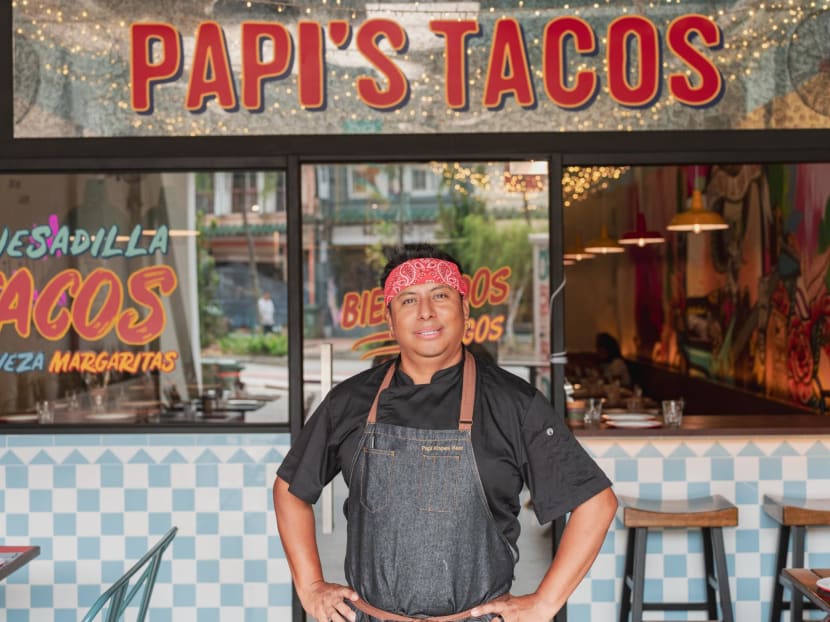
Papi’s Tacos’ owner Jose Mauricio Espinoza Lara. (Photo: Papi’s Tacos)

This audio is generated by an AI tool.
“Legally,” chef Jose Mauricio Espinoza Lara replied with a wry smile when I asked how he ended up in Singapore, where he now runs a chain of taco restaurants – a world away from his native Mexico.
He bounces on his feet, shoulders drawn, chest puffed in a stance that conveyed sass and a practised ambivalence. Lara has a gregarious spirit. He’s warm and quick to laugh. Yet beneath that surface bubbled something that felt like defiance. Or was it bravado? It’s a charged undercurrent, his agent of self-protection, perhaps, honed from years of walking the tightrope over the precarities of being a young undocumented worker in New York City.
At 14, Lara arrived in the United States with nothing in his pockets and a dream of escaping his family’s strict diktats. He had no specific goal in mind. “I was just a kid who wanted freedom. What did I know?” he recalled. He’d convinced a friend to take him across the border for about US$1,500 (S$1,924), which he would return by working once he entered the country.
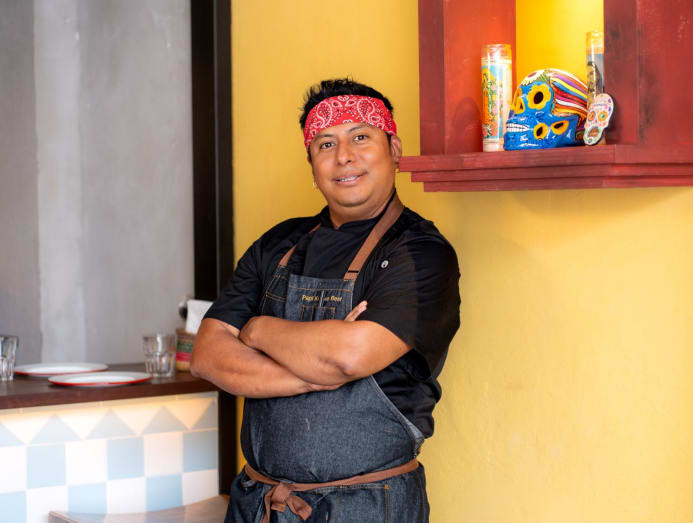
“That morning, I saw my mum, told her I was going to school, and I never came back. We took a plane from Mexico City to Tijuana, and from there, the coyote (a slang for people who smuggle undocumented immigrants into the US), picked us up,” he said. Except it wasn’t the coyote, but kidnappers looking to steal money. The pair had gotten into the wrong car. “My friend only saw the colour of the taxi. He didn’t check the plates.”
When I asked what the kidnappers did to them, his lips curled into that dry smile again. “I mean, they didn’t give us coffee. They beat us up because they thought we had money. But we were just kids – 14 years old. How much money can you have?”
They were held for several hours in a room Lara described as “a place where you can see that bad things have happened”, and given one more beating before their release. After getting in touch with the real coyote, the duo were taken to a remote building where they spent the night with “tonnes of people – Latin American, Chinese, Indians” all stuck in an airless hold, waiting for their chance to make it across to the Promised Land.
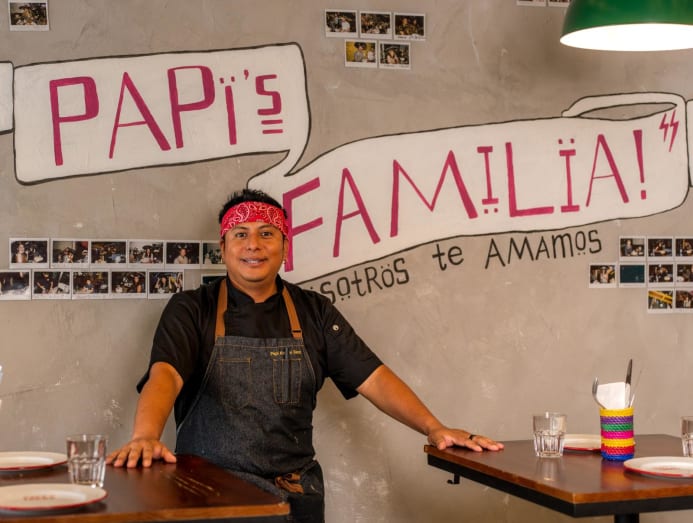
When he arrived in New York City, Lara stayed in the shadows, shunting from one job to another, mostly in restaurant kitchens. He lodged with friends, bouncing from borough to borough, leaving as soon as he sensed trouble brewing. “All I had at that time was (in) a laundry bag. So I kept changing areas, running away from problems because I didn’t want to be a part of it,” he said.
He found work in the kitchens of big-name chefs like Mario Batali, Iron Chef Masaharu Morimoto and Masayoshi Takayama, but realised he was falling behind because he couldn’t speak English. “(The chefs) got fed up trying to teach me and I got disappointed. I could replicate, but I didn’t understand the reasons behind (what they were doing),” he said. He started taking English lessons at age 19, which led to a General Educational Development (the equivalent of a high school credential) and eventually, a degree in International Business.
LAND OF OPPORTUNITY
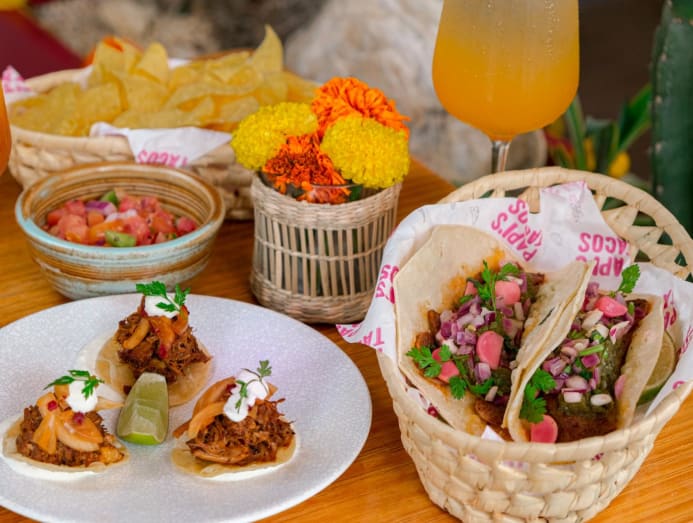
After 15 years, Lara decided it was time to go home. “I didn’t see my family since the day I left, so I decided to go back. But it was tough because I didn’t have any friends (in Mexico) and the system just wasn’t working for me,” he said.
To make ends meet, he schlepped 15km from his hometown in Papalotla to bustling Puebla to peddle tacos on the street once a week. It's hard to imagine, but it’s a lot easier selling tacos in Singapore than it is in Mexico, where criminal gangs commonly demand a “right-to-operate” or “protection” fee that outstrips a vendor’s daily earnings. The refusal to pay never ends well for the vendor.
The second time Lara was approached by cartel members for “derecho de piso” (the right-to-operate fee) was the last time he made that trek. “There’s no point,” he said. “(The fee) doesn’t even cover my costs. Basically, I would be working for them.”
Lara was working in manual labour when he received a call from his former employers, the owners of New York bar Employees Only, inviting him to be part of their opening team in their first international outpost in Singapore.
“I literally quit that day. I said, ‘So long, you boys, I’m leaving!’” he laughed, drawing an imaginary line towards the door with his index finger. “Whoosh!”
On a night out in Singapore, Lara ordered beef tacos. “It was those tacos in the hard shell and the beef was sweet and sour,” he scrunched his face in mock offence, “and this is in a Mexican restaurant! The sauces were like bottled sauces from the supermarket. And one of them was sriracha!”
When he joked about having to open a Mexican restaurant in Singapore, no one laughed. Instead, a friend and his bosses at Employees Only offered their backing. To test the market, Lara organised a Mexican food pop-up at the now-defunct Park Bench Deli with its chef-owner Andrei Soen in 2017.
The event was a hit, but it made him realise how difficult it would be to serve good Mexican food in Singapore. “I found it’s very hard to get Mexican ingredients. So it’s very hard to duplicate the flavour from Mexico here. And the most important (lesson) is it’s going to be so hard to train people to understand the flavours, especially if they’ve never had Mexican food,’ he said.
“I found out that Singapore is not a joke. It's hard to succeed in business (here). But at the same time, I realised someone’s got to do it. So I decided to keep my prices as low as possible, just enough that they could cover my expenses.”
TACOS IN SINGAPORE
The first Papi’s Taco outlet opened along Seah Street in 2018. Four years later, Lara followed with another in Tanjong Pagar, before opening a third in Joo Chiat in 2023. Last July, he introduced his fourth and largest outlet along Tyrwhitt Road, a 1,600 sq ft space that allowed him to offer more and bolder dishes that “keep the heart and soul of Mexico alive in Singapore”.
Lara said he did not set out to start a chain, but as it is for most restaurant owners, he expanded to provide growth opportunities for his employees. “We all need a sense of belonging and a push, so this is important, so that I can take care of my staff,” he explained.
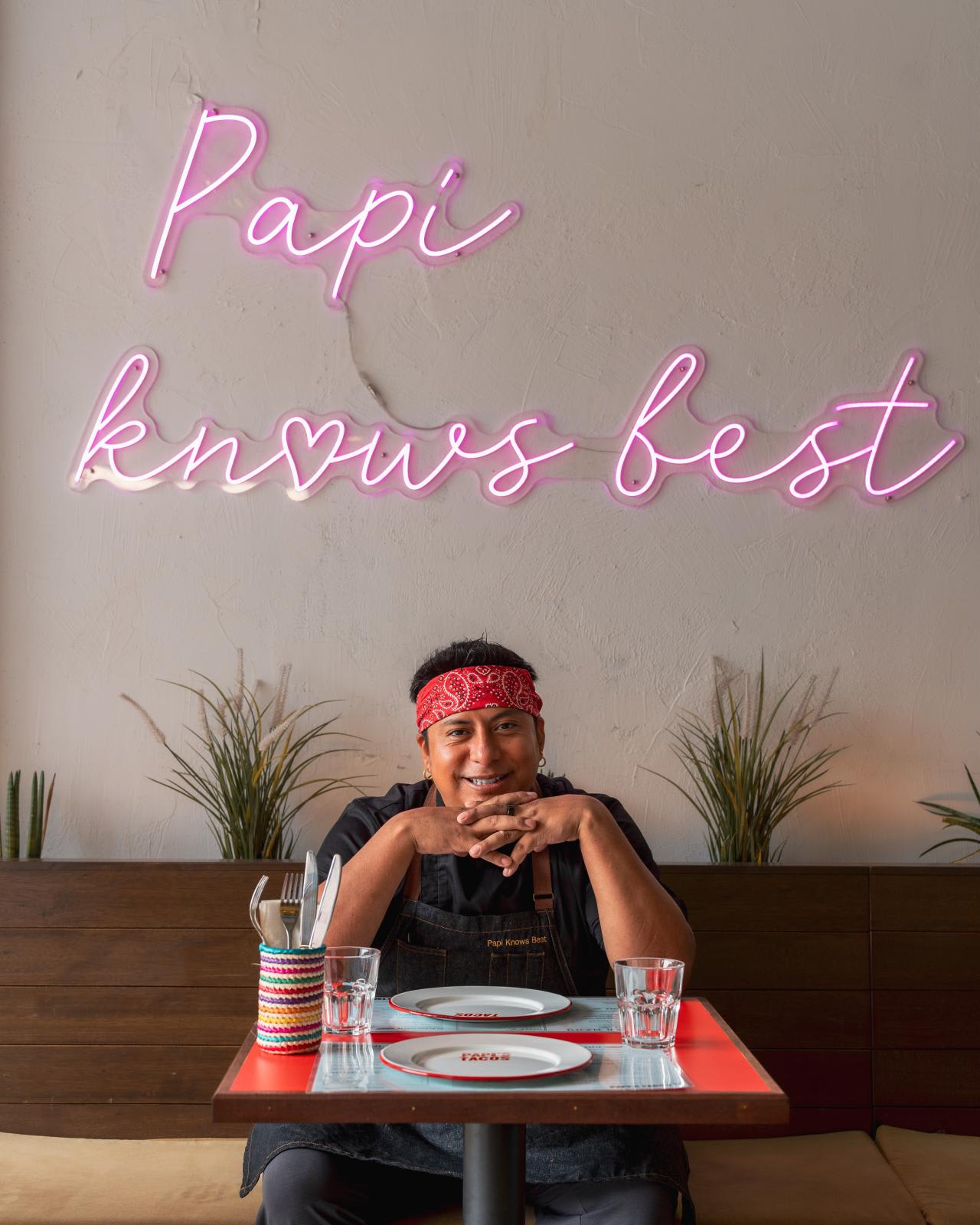
It’s also a way for him to address what was often denied to him as a young, undocumented worker in the United States. “I was told to choose between going to school and work, because my chef would not allow me to do both. I was told things like, ‘I’m not willing to help you,’ or ‘speak English,’ or ‘you shouldn’t be working here; you should be working in an Italian restaurant because Mexicans are good for Italian food.’
“It was tough, you know? So as an entrepreneur, it’s important that I give people the opportunities that were not given to me and to show them that this is not just a job, it’s a career,” he said.
It could well be that the undercurrent of defiance buzzing beneath Lara’s surface has been channelled to the way Papi’s Taco illustrates how success and dignity can be won by simply staying the course. Lara, now 41, has harnessed his setbacks into a personal expression of the equanimity from others that eluded him in his younger years.
“At the end of the day, once you stay true to who you are and what you do, there's always a way,” he said, as we rise from our seats and he returns to setting up for another lunch service.






